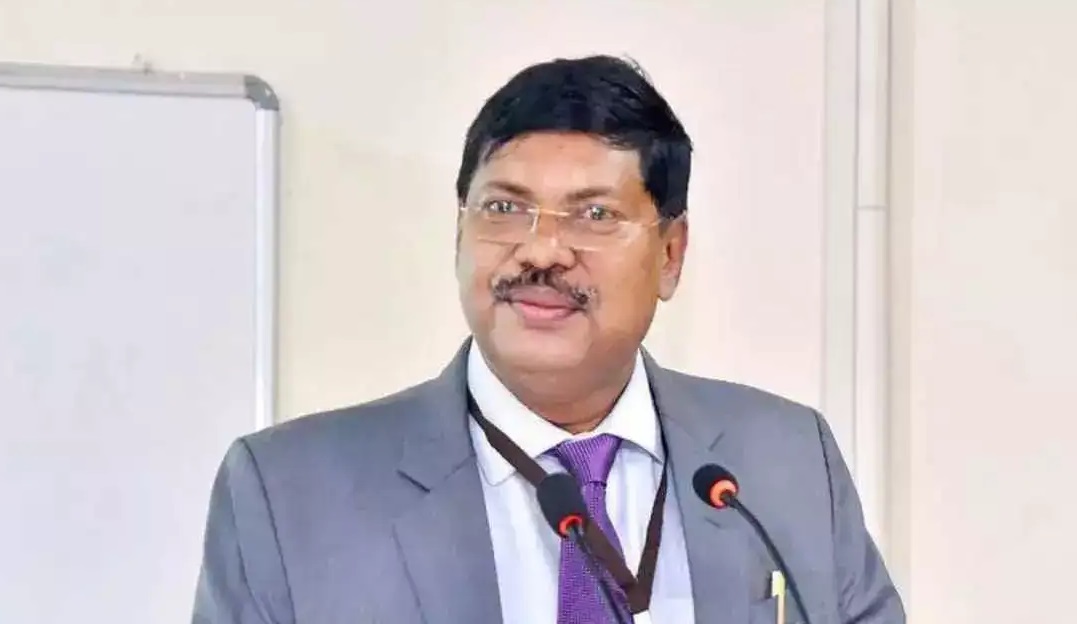Justice Bhushan Ramkrishna Gavai took over as the Chief Justice of India (CJI). He was sworn in by President Draupadi Murmu. CJI BR Gavai accepted the greetings of the President as well as Prime Minister Narendra Modi, Vice President Jagdeep Dhankhar, former President Ram Nath Kovind and other dignitaries at Rashtrapati Bhavan. Justice Gavai replaced Justice Sanjiv Khanna, who retired just last day. Earlier on the 30th of last month, the Law Ministry had issued a notification appointing Justice Gavai as the 52nd Chief Justice of India. On April 16, CJI Khanna recommended his name to the central government.
Justice Gavai became the 52nd Chief Justice of the country
According to tradition, the current CJI recommends the most senior judge as his successor. Justice Gavai was at the top in the order of seniority, due to which his name was recommended. The Law Ministry had officially appealed to CJI Justice Khanna to name his successor. Such was his career
Justice Bhushan Ramakrishna Gavai, who started practising on March 16, 1985, has served as permanent counsel for Nagpur Municipal Corporation, Amravati Municipal Corporation and Amravati University. He served as Assistant Government Advocate and Additional Public Prosecutor in the Nagpur Bench of the Bombay High Court from August 1992 to July 1993. On January 17, 2000, he was appointed as Government Advocate and Public Prosecutor for the Nagpur Bench. On November 14, 2003, he became an additional judge of the Bombay High Court and was appointed a permanent judge on November 12, 2005. On May 24, 2019, he was made a judge of the Supreme Court. Justice Gavai was a part of many constitutional benches in the Supreme Court, whose decisions had significant impact. In December 2023, he was a member of a five-judge Constitution bench that unanimously upheld the Centre’s decision to abrogate Article 370, which gave special status to Jammu and Kashmir. Father has been the former Governor of Bihar and Kerala
Justice Gavai was born on 24 November 1960 in Amravati, Maharashtra. Justice Gavai’s father, late RS Gavai, was also a famous social worker and former Governor of Bihar and Kerala. Justice Gavai will be the second Chief Justice of the country belonging to Scheduled Caste. Before him, Justice KG Balakrishnan has achieved this feat in the year 2010.
Justice BR Gavai gave historic verdicts on many cases
Rajiv Gandhi assassination case (2022)
A bench headed by Justice Gavai approved the release of convicts who were in jail for more than 30 years, holding that the Governor had not taken any action on the recommendation of the Tamil Nadu government.
Vaniyar Reservation (2022)
The decision of the Tamil Nadu government to grant special reservation to the Vaniyar community was declared unconstitutional by the Supreme Court as it was discriminatory against other backward classes.
Demonetisation (2023)
Justice Gavai upheld the 2016 demonetisation scheme by a 4:1 majority, saying that the decision was taken after consultation between the Central Government and the Reserve Bank of India and that it meets the “test of proportionality”.
Tenure of ED Director (2023)
In July 2023, Justice Gavai’s bench declared the extension of the tenure of Enforcement Directorate Director Sanjay Kumar Mishra illegal and directed him to step down by July 31, 2023.
Bulldozing action (2024)
In 2024, a bench of Justice Gavai and Justice KV Vishwanathan said that demolishing someone’s property only on the basis of being accused or convicted is unconstitutional. Action cannot be taken without due process of law, if it happens then the concerned officer will be responsible.
Other decisions
Congress leader Rahul Gandhi was given relief in the Modi surname case. He was disqualified from the Lok Sabha after serving a two-year sentence in this case.
Granted bail to social activist Teesta Setalvad.
Granted bail to former Delhi Deputy Chief Minister Manish Sisodia in the Delhi liquor scam.
Granted bail to BRS leader K Kavitha in the Delhi liquor scam.
